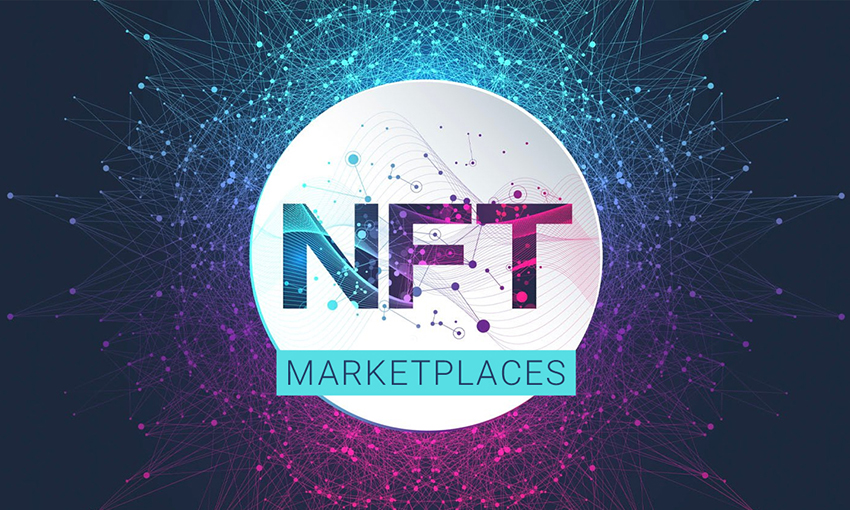
Best Crypto Business Ideas
The world of cryptocurrency and blockchain technology has ushered in a new era of innovation and financial disruption. As the global economy increasingly embraces digital currencies and decentralized networks, entrepreneurs and businesses find themselves at the precipice of countless possibilities. In this article, we embark on a journey to explore some of the most promising and forward-thinking crypto business ideas.
From the decentralized financial revolution sweeping across the globe to the exciting world of NFTs (Non-Fungible Tokens) and blockchain-based gaming, each idea holds the potential to redefine industries and create new avenues for financial growth. Moreover, we’ll delve into the realm of blockchain consulting, supply chain solutions, and specialized marketing for crypto projects, illuminating the diverse landscapes within the crypto business sphere.
Join us as we venture into these innovative concepts, unraveling their essence, examining real-world examples, and weighing the advantages and challenges that await those eager to step into the crypto frontier. Whether you’re an aspiring entrepreneur or simply intrigued by the possibilities of blockchain and cryptocurrency, this exploration will provide you with valuable insights into the ever-evolving world of digital finance and technology.
Decentralized Finance (DeFi) Platforms

DeFi platforms like Uniswap and MakerDAO are reshaping the financial landscape by offering blockchain-based financial services such as lending, borrowing, and yield farming. These platforms leverage smart contracts to automate transactions, providing higher interest rates and more accessible financial services across the globe.
Pros:
- High growth potential. With the expanding crypto market, DeFi platforms have a large scope for growth.
- Global accessibility. These platforms make financial services available worldwide, including in unbanked areas.
- Innovation in finance. DeFi introduces creative financial products beyond traditional banking models.
Cons:
- Regulatory challenges. DeFi is subject to evolving and unclear regulations.
- Security risks. Vulnerability to smart contract exploits and potential hacking.
- Market volatility. DeFi platforms are susceptible to the highly volatile nature of the cryptocurrency market.
Crypto Exchanges and Wallets
Businesses such as Coinbase, a cryptocurrency exchange, and Ledger, known for its secure hardware wallets, are pivotal in the crypto industry. Exchanges enable users to trade various cryptocurrencies, while wallets provide secure storage for these digital assets. These platforms form the backbone of the crypto trading and investment ecosystem, offering liquidity and a range of trading options.
Pros:
- Constant demand. As key components of the crypto market, exchanges and wallets see steady user demand.
- Diverse revenue streams. They generate income through transaction fees, wallet sales, and other services.
- Scalability. These platforms can expand and evolve with the growing crypto market.
Cons:
- Security challenges. High risk of cyber-attacks and the need for robust security measures.
- Regulatory compliance. Constantly changing and complex regulations pose a significant challenge.
- Technical and operational complexity. Requires sophisticated technology and infrastructure for smooth operation.
NFT Marketplaces

Platforms like OpenSea and Rarible have revolutionized the digital art world by allowing creators to mint, buy, sell, and trade Non-Fungible Tokens (NFTs). NFTs represent ownership of unique digital items such as artwork, collectibles, and even virtual real estate, offering a new way for artists and collectors to engage in the digital economy.
Pros:
- Growing market. The NFT sector is expanding rapidly, tapping into new audiences.
- Revenue opportunities for Artists. Provides a new platform for artists to monetize their work.
- Innovative use cases. NFTs offer diverse applications, from digital art to tokenizing real-world assets.
Cons:
- Market uncertainty. The NFT market can be unpredictable and is still evolving.
- Copyright and legal issues. Navigating intellectual property rights can be complex.
- Environmental concerns. The energy consumption related to NFTs and blockchain has raised sustainability concerns.
Blockchain-Based Gaming
Blockchain-based gaming, illustrated by platforms like Axie Infinity and The Sandbox, integrates cryptocurrency and NFTs into gaming experiences. This allows players not only to enjoy gaming but also to earn digital assets and have true ownership of in-game items. These games utilize blockchain technology to create decentralized gaming economies, where players can trade, sell, or buy in-game assets as NFTs or cryptocurrencies.
Pros:
- New revenue models. Play-to-earn models offer players a chance to earn while playing.
- True ownership of assets. Players have real ownership of in-game items, which they can trade or sell.
- Innovative gaming experiences. Blockchain introduces unique mechanics and economies into gaming.
Cons:
- Market volatility. The value of in-game assets can fluctuate widely.
- Technical barriers. Requires understanding of blockchain and cryptocurrency for players.
- Regulatory uncertainty. As a new field, it faces unclear regulatory guidelines.
Smart Contract Development Services

Smart contract development services, provided by companies like Chainlink and OpenZeppelin, involve creating self-executing contracts with the terms of the agreement between buyer and seller being directly written into code. These services are crucial for businesses looking to automate processes, create decentralized applications (DApps), or integrate blockchain technology into their operations.
Pros:
- High demand. With the rise of blockchain, demand for smart contract development is increasing.
- Automation and efficiency. Smart contracts automate and streamline complex processes.
- Security and transparency. They offer a secure and transparent way to conduct transactions.
Cons:
- Complex development. Creating robust smart contracts requires high technical expertise.
- Security risks. Poorly written contracts can be vulnerable to attacks.
- Regulatory compliance. Must navigate legal implications in different jurisdictions.
Supply Chain Solutions
Blockchain supply chain solutions, exemplified by projects like VeChain and IBM Blockchain, enhance transparency and efficiency in tracking the production, shipment, and delivery of products. By leveraging blockchain, these solutions provide a tamper-proof, immutable record of the entire supply chain process.
Pros:
- Enhanced transparency. Offers clear visibility into the supply chain.
- Reduced fraud and errors. Immutable record-keeping reduces chances of fraud.
- Improved efficiency. Streamlines supply chain processes, saving time and cost.
Cons:
- Implementation complexity. Integrating blockchain into existing systems can be challenging.
- Collaboration requirements. Requires buy-in from all stakeholders in the supply chain.
- Scalability issues. Scaling blockchain solutions can be difficult and costly.
Marketing and SEO for Crypto Projects

Specialized marketing and SEO services for crypto projects focus on enhancing the online visibility of blockchain and cryptocurrency ventures. They develop tailored marketing strategies, including content marketing, social media campaigns, and community management, specifically designed for the crypto audience.
Pros:
- Niche expertise. Specialization in crypto ensures effective targeting and messaging.
- High demand. As the crypto market grows, so does the need for specialized marketing.
- Global reach. Online marketing allows reaching a worldwide audience.
Cons:
- Rapid market changes. The fast-paced nature of crypto requires constant strategy adjustments.
- Regulatory compliance. Marketing messages must navigate varying global regulations.
- High competition. A growing number of projects means more competition for visibility.
Conclusion
Each of these crypto business ideas represents a unique opportunity in the burgeoning world of digital assets and blockchain technology. While they offer the potential for innovation and growth, they also come with specific challenges that require careful navigation and expertise.